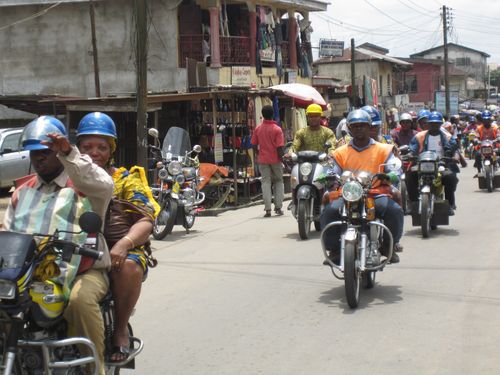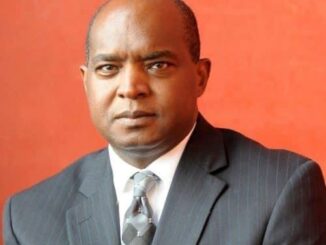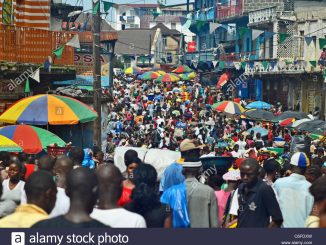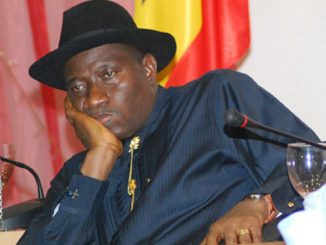
Commercial motor bikes (famously known in Nigeria and Sierra Leone as “okada”) have been banned from entering the Central Business District (CBN) of Freetown by the newly appointed Minister of Internal Affairs, Retired Major Palo Conteh. A lot of Freetown dwellers applauded the move. The okadas over the past four years have become increasingly more emboldened in violating traffic rules, endangering the lives of pedestrians, maiming many people, causing the death of some. Before the ban, a walk, or drive, in the CBN had proven to be a hair-raising experience – as okadas would wheeze in and out of traffic, climb up pedestrian walks, raising hourly alarms as they would hit, or, nearly miss to hit, especially children and old people. But, as the ban on okadas in the CBN takes hold, people are now seeing the real value of okadas as the main mode of transportation in the city: they are now being made to pay three times more for transportation, and are spending five times more time in moving around the city. There appears to be a need to do a rethink of the ban on the okada; and, maybe, “go back to the drawing board”.
Tejan Kabbah to Charles Margai: “Go back to the drawing board”
“Go back to the drawing board” in the title of this piece is evoking the words of late President Tejan Kabbah (SLPP leader; President from 1996 to 2007). It was 1998. Kabbah’s internal affairs minister, then powerful Charles Margai, was already breaking down stalls of traders, after having ordered the police to arrest hawkers on the main thoroughfare of Freetown. As a writer in THE DEMOCRAT newspaper then, I started doing investigative journalism on the issue. I interviewed government officials. I spoke with the petty traders. I went to every market in Freetown. I attended meetings of the United Indigenous Commercial Petty Traders Union (UICPTA). I did a serial on the issue in THE DEMOCRAT newspaper. My reasons? The war was still on. About 98% of the people in Freetown were poor, even beggarly, eking out a living. There were almost no new jobs being created. I was with the UICPTA at the Presidential Lodge at Hill Station when President Tejan Kabbah, after listening to the appeal of the petty traders, and the views of his internal affairs minister, ordered a chastened Minister Charles Margai to “go back to the drawing board”. It turned out to be one of the deft political moves of Tejan Kabbah – that could have helped the SLPP’s 72% landslide victory in the 2002 elections.
Ordinary Freetown-ers Appear Worse Off Because of Okada Ban
The majority of Freetown-ers appear worse off because of the ban on okadas in the CBN. Youth I have talked with complain they now walk from Up Gun, from Cline Town… to the Youyi Building area. Why? There are hardly enough buses and taxis around. Also, when these commercial vehicles are available, they would have to stand in long queues for over one hour. When they do get into these commercial vehicles, they would have to sit down inside vehicles suffering under the heat and high humidity of Freetown as the traffic move at snail pace. A journey that the okadas would do in 15 minutes now take literally TWO HOURS in taxis and buses. The city of Freetown has been slowed down because of the ban on okada in the CBN.
City dwellers all over the world would tell you that one of the worst things you can do to a city is to slow it down. Cities are built on hope. Hope is manifested in constant movement; in getting things done; in striving to make money. Remove or slow the movement of people in a city and you begin to kill this crucial ingredient of that city: hope. Sierra Leone’s economy was growing at about 6% before the Ebola enemy struck. That, plus lower international demand for a principal export commodity of Sierra Leone, iron ore, has meant a crimped post-Ebola economy. The value of the Leone is almost daily going down against the US dollar. Prices are rising in the market for many basic commodities. People are now more stretched to make ends meet. They have an urgent need to move around speedily to make ends meet. This is hardly a time to slow down the city by banning the okadas.
Okada Union supports ban; but, appeals for a rethink of ban
On Wednesday, I spoke with the Public Relations Officer of the Okada Riders Union, Alusine Dumbuya. He told me that his union supports the ban, but, they have not been supportive of the “manner in which the ban has come into effect”. Without adequate consultation with their union!! Alusine said that last year, there was a meeting between the okada union and other governmental agencies (the Sierra Leone Police; the Sierra Leone Road Safety Authority, the transport ministry) chaired by the Chief of Staff in the Office of the President, Saidu Conton-Sesay. The groups signed a MoU. But, according to Alusine, the road safety authority and the police did not live up to what was agreed on in that MoU. He said the new internal affairs minister did invite the okada union to a meeting before the recent banning. The meeting was attended by the President of the Bike Riders Union, David Sesay, who apparently signed the order agreeing to the banning of the okadas from the CBN; but, Alusine said, “David Sesay did not even consult the executives of the okada union before signing the document; and such a matter should have been presented to the entire membership”.
Alusine said that the National Youth Coalition (NYC) did a perception survey last year to gauge public perception about the okadas. He said that study showed that most people think that okadas drive too recklessly, and are the main cause of road accidents in Freetown. He said that that study was taken to Assistant Superintendent of Police, I.M.F. Samura, with recommendations from the Bike Riders Union as to how to work with the police to discipline their members. He said that ASP Samura promised to take the matter to the Inspector General of Police – and get back to the Union. He never did, Alusine said.
Alusine said that the Bike Riders Union is ready to work with the relevant governmental authorities to help police its membership. But, he said that part of the problem is that some of the okada riders do not belong to any union; and some of them could be “criminals” or ex combatants of our war era, inclined to be reckless, because of their past. This history could not be lost on one of the most celebrated lawyers in the country, Blyden Jenkins-Johnston, who has made a public call for the review of the ban on okadas. He bemoaned the extension of the CBN beyond St. John in the Westend and up to Kissy Road in the Eastend. It appears as if reckless riding of okadas on city streets is a ‘genetic trait’ in West African cities
Recklessness of okada riders appears ‘genetic’ in West Africa
The word “okada” has emanated from Nigeria. It is after the popular Nigerian-owned and operated airline in the 1990s, Okada Airlines, owned by transportation tycoon, Chief Gabriel Igbinedion.
Taxicab and bus service in Nigeria is inadequate, and congestion and poorly maintained roads are widespread. Okadas are used in cities such as Lagos by businessmen, government workers, and students to overcome traffic congestion. Okadas can navigate roads that are inaccessible to automobiles and buses, particularly in villages and urban slums. Contributing to the flourishing of okadas is their low purchase price for operators, and their superior fuel efficiency, which is particularly important during petrol shortages in Nigeria. As in Nigeria..so in Sierra Leone.
I bring out excerpts from this Study done in Nigeria, titled “The Effect of Socio-Economic Survival of Okada Riders on African Cultural Values”, by Onifade, Comfort Adenike, et. al. of the Federal University of Agriculture, Abeokuta, South West Nigeria. “The recklessness that is associated with the okada business tends to erode certain cultural and moral values including respect for other road users, respect for authority and elders within the immediate environment….”. This Study could also reflect what is happening in Sierra Leone: “Okadas… have a far higher rate of causing crippling and fatal accidents per unit of distance than automobiles. Such accidents, usually caused by the fact that many okada riders are either untrained or unlicensed, while majority do not pay attention to road signs or other motorists on the road…while the law enforcement agents sometimes overlook their offences once they have been bribed…”
The chilling part of this Study for post-war Sierra Leone is this one: “This study shares the view of Dollard… expressed in their frustration-aggression theory …which states that frustrations can create aggressive inclinations… Frustration is a state that sets in if a goal- oriented act is delayed or thwarted. It can be subsumed from this theoretical base that the Okada riders are significantly frustrated by the harsh economic conditions coupled with the problem of unemployment and corruption (In Nigeria). The manifestation of their frustration can only be directed towards other road users, their passengers and… authority…” .
Alusine Dumbuya said “The DDR failed” – that is the Disarmament Demobilization and Reintegration of armed combatants at the end of Sierra Leone’s civil war in 2002. Most of the ex-armed combatants have now morphed into okada riders, Alusine said. Maybe, earning fairly high income riding in the CBN in Freetown has helped to defuse the lurking murderous emotions of these ex combatants. What if their goals of having decent livelihood is blocked by the okada ban in the CBN? Think. For the collective good of the country, let’s rethink, and go back to the drawing board on the okada issue. The Rainy Season is normally the time for burglars to break and enter into homes. The okada ban could worsened this situation. As we approach the 2018 elections, we don’t want to be provocative of youth who could be volatile. As I sign off in social media… “I pause”.



